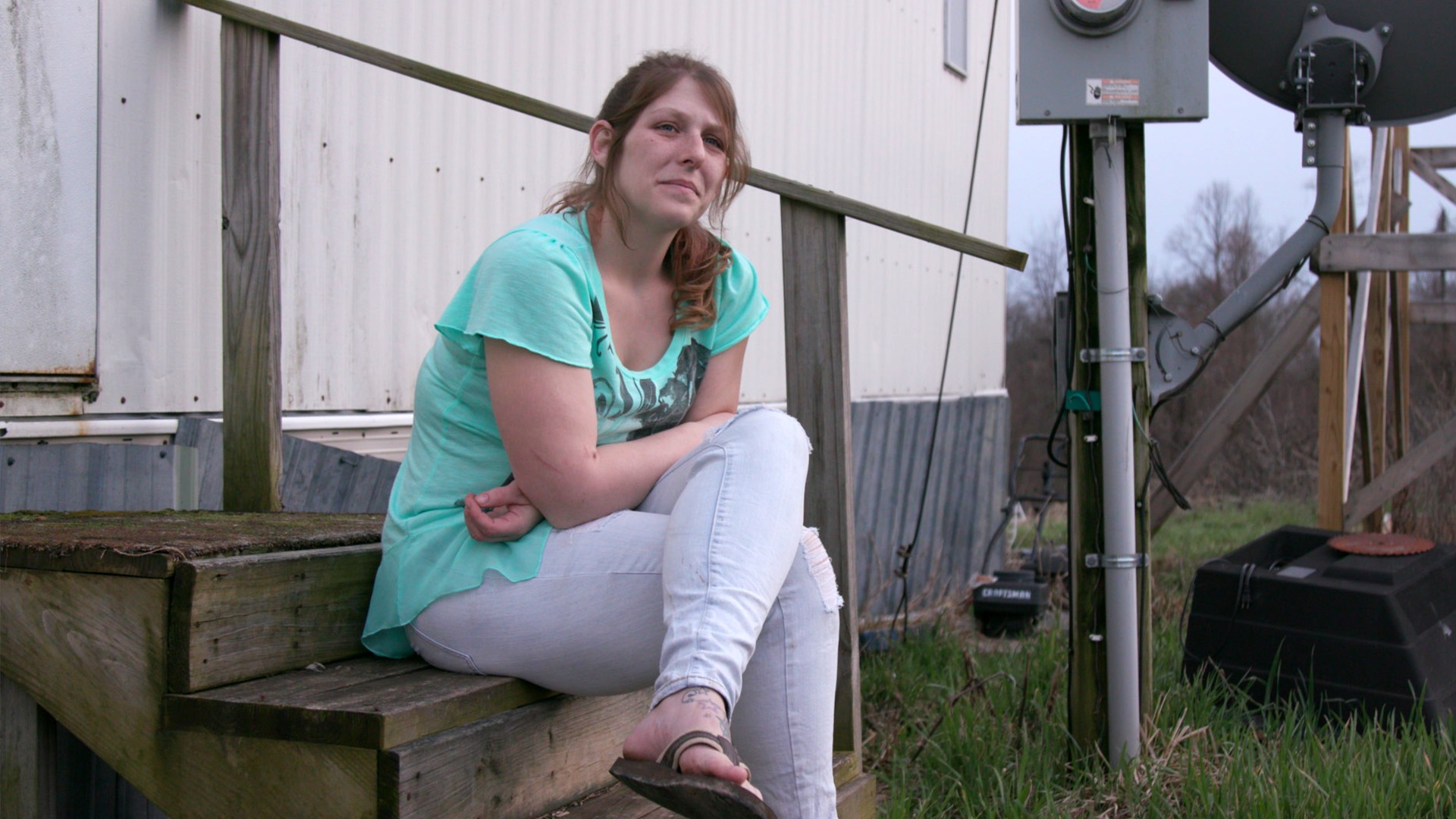BackyardProduction / Getty Images
Fighting Words is a column in which writers rub you the wrong way with their unpopular but well-argued opinions on fitness, health, nutrition, what have you. Got something to get off your chest? Send your pitch to tonic@vice.com.Getting the language right is more than semantics in drug policy: it can be a matter of whether a parent gets custody of a child, whether the right addiction treatment is used—and even one of life or death. That's why the Associated Press updated its stylebook entry on addiction in June, attempting to bring clarity to an area where inaccurate assumptions are rarely questioned and ignorance masquerading as expertise thrives.In short, the AP advised journalists not to use addict as a noun and instead use phrases like "he was addicted, people with heroin addiction, or he used drugs"—and also to stop using outdated and inaccurate former diagnostic terms like "dependence" and "abuse."Unfortunately, major publications like the New York Times and the Washington Post don't seem to be listening. In the past few weeks alone, both ran coverage of the overdose epidemic that reinforced stereotypes, stigma, and misconceptions. Understanding where major media outlets go wrong underscores why we so urgently need to do better.Let's start with the Times, which published an otherwise sensitive story on babies exposed to opioids during pregnancy on July 13th. In some versions of the print edition, the story was headlined "Mom is Part of the Cure for Tiny Opioid Addicts." The problem? Babies cannot be addicted to any kind of drug—and the idea that some infants are addicted undermines the use of best treatment for both mom and child.The confusion around whether babies can be addicted was spurred mainly by a decision made in 1987, when psychiatry's diagnostic manual, the DSM, chose to call its diagnosis for addiction "substance dependence" in an unfortunate attempt to reduce stigma. This led many people to see addiction as being synonymous with depending on a substance to avoid withdrawal—and the latter can indeed occur in babies.
Watch more from Tonic:
But actually addiction and dependence are far from the same: addiction is a disorder in which people compulsively pursue a substance or activity despite negative consequences; dependence is merely relying on a substance or activity to function and avoid withdrawal. Dependence is not always problematic.Here's why this matters. A baby cannot compulsively pursue a substance despite bad outcomes: A newborn doesn't even know what he or she craves and a person unable to roll over or crawl, let alone walk or talk, would have, shall we say, a hard time scoring, especially since infants don't tend to have much money stowed in their onesies.Moreover, calling babies "addicts" instantly tars them with a stigmatized identity frequently linked with dishonesty, violence, and cruelty (although in reality, this "addictive personality" concept is inaccurate.)During the crack years, it turned out that having the scorned identity of "crack baby" enabled child abuse. By making parents, caregivers, and teachers view their misbehavior as pathological rather than childish and spurring more punitive responses to normal kid stuff, this actually could and often did do more harm than the drug itself.Yes, babies can be born with physical dependence to opioids, which means that without being given tapering doses of the drugs, they will suffer withdrawal. But the same is true for some babies born to mothers who take certain antidepressants—yet they are not tarred with the addict brush, because we recognize that making life bearable for mothers with severe depression is important for both mother and child.Also, critically, physical dependence is not necessarily a problem on its own. People with type 1 diabetes are physically dependent on insulin, some people with depression are physically dependent on antidepressants, and certain blood pressure medications cause dependence so severe that it can cause death if the drugs aren't tapered appropriately. In none of these cases, however, are these patients "addicted" because their therapeutic use of these substances saves their lives, rather than diminishing them. (Not to mention that we're all physically dependent on air, food, water, and human contact—given this, calling addiction "dependence" makes the term almost meaningless).Even more importantly, the two most effective treatments we have for opioid addiction—methadone and buprenorphine, used long term—both cause physical dependence. Each of these medications cuts relapse risk and mortality risk by at least half compared to non-medication treatment and, during pregnancy, they are the safest option for the fetus because withdrawal can be fatal to the developing child. However, if you don't distinguish between addiction and dependence, patients who take these medications are viewed as "still addicted"—and this causes enormous problems for families with opioid addiction.This can be seen directly in the Times story. Because the young mother featured in the piece followed medical advice and took the standard-of-care medication for opioid addiction in pregnancy (Subutex, a form of buprenorphine), she initially lost custody of her child.
You read that right: her child was taken from her because she did the right thing to protect the both herself and her developing baby.Why? Because, being unable to distinguish between addiction and dependence, many child custody agencies, law enforcement groups, and even judges, believe that being on methadone or buprenorphine is not really what they label as "clean." They don't understand that when patients are appropriately stabilized on these medications, they are not impaired and can love, work, drive, and parent as well as anyone else, according to the data.This is why the AP now says that addiction and dependence should not be conflated—and also why it recommends not using terms like "clean" or "dirty" to describe people with addiction, when in or out of recovery. This kind of language is highly stigmatizing and is not used in relation to any other kind of medical problem. Similarly, the AP calls for "person-first" language, which, again, is commonly used for conditions widely recognized as medical like schizophrenia, but is a form of respect denied to those maligned as "addicts."The AP also urged reporters to stop using the terms "substance abuse" or "substance abuser" because they, too, are stigmatizing and have been dropped by the DSM. The word abuse is associated with harm to others like "child abuse" or "sexual abuse"—it creates the impression that the person taking drugs is abusive. Indeed, one study in the International Journal of Drug Policy found that even the best-trained clinicians—those at Master's and even the doctoral level—were more likely to recommend incarceration or other punishment if a case history described a patient as a "substance abuser" as opposed to "having a substance use disorder."The Washington Post piece, regarding communities' struggle to pay for the overdose treatment naloxone, trafficked in a more subtle form of stigma. While frequently using "addict" as a noun and questioning whether people with addiction—unlike with other disorders—should be revived repeatedly, it also quoted a sheriff making a medically impossible claim.As Butler County, Ohio, sheriff Richard K. Jones told the paper, "The judges, to save the babies, sentence the mothers to jail. But when the women get here, they induce labor so they can get back out and do more heroin."That statement is incorrect in multiple ways. For one, putting pregnant women with addiction in jail does not save babies: it stresses both mother and child and is opposed by leading medical organizations because it deters them from seeking prenatal care—which does save babies. Secondly, women cannot reliably self-induce labor without pharmacological assistance, which jails do not provide. With any other disease, would a comment by a nonmedical person about medical care like this be included without any statement of the actual facts?The question answers itself. And if we want to effectively help people with addiction and end the overdose crisis, we've got to apply the same standards of appropriate use of language and appropriate recognition of expertise (or lack thereof) in writing and talking about the problem.Related:Ohio Lawmaker Suggests Letting People Die If They've Overdosed Twice BeforeHeroin Has Never DiscriminatedPrescribed Painkillers Didn't Cause the Opioid Crisis
Advertisement
Advertisement
Watch more from Tonic:

But actually addiction and dependence are far from the same: addiction is a disorder in which people compulsively pursue a substance or activity despite negative consequences; dependence is merely relying on a substance or activity to function and avoid withdrawal. Dependence is not always problematic.Here's why this matters. A baby cannot compulsively pursue a substance despite bad outcomes: A newborn doesn't even know what he or she craves and a person unable to roll over or crawl, let alone walk or talk, would have, shall we say, a hard time scoring, especially since infants don't tend to have much money stowed in their onesies.Moreover, calling babies "addicts" instantly tars them with a stigmatized identity frequently linked with dishonesty, violence, and cruelty (although in reality, this "addictive personality" concept is inaccurate.)During the crack years, it turned out that having the scorned identity of "crack baby" enabled child abuse. By making parents, caregivers, and teachers view their misbehavior as pathological rather than childish and spurring more punitive responses to normal kid stuff, this actually could and often did do more harm than the drug itself.Yes, babies can be born with physical dependence to opioids, which means that without being given tapering doses of the drugs, they will suffer withdrawal. But the same is true for some babies born to mothers who take certain antidepressants—yet they are not tarred with the addict brush, because we recognize that making life bearable for mothers with severe depression is important for both mother and child.
Advertisement
You read that right: her child was taken from her because she did the right thing to protect the both herself and her developing baby.
Advertisement
Advertisement
